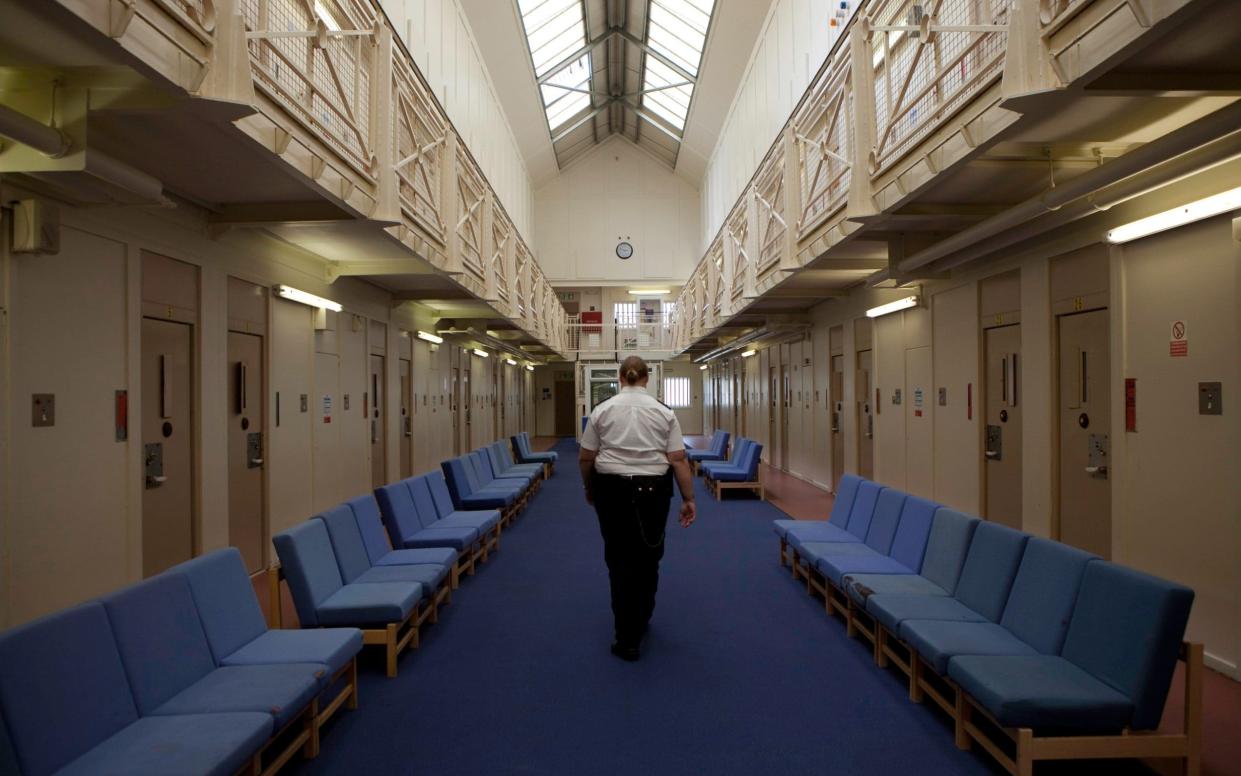Protecting women and their spaces is not transphobic, says Ministry of Justice

Protecting women is not transphobic, the Ministry of Justice (MoJ) has suggested after civil servants drew up a list of “coded language” that claimed it was.
The Telegraph revealed in November how thousands of officials were emailed for “transgender awareness week” and told they should not use the terms “gender critical” and “protecting women and girls” in order to be trans allies.
The email, marked “official sensitive” via the HM Prison and Probation Service (HMPPS) diversity and inclusion team, contained a 35-point glossary of everyday phrases titled “recognising transphobic coded language”.
The list included the phrase “gender critical”, which is used to refer to campaigners who believe biological sex is binary and immutable, as well as “protect women’s spaces/protecting women and girls”.
It claimed the term gender-critical is “used to make anti-trans discrimination sound palatable or a respectable opinion”, while the phrase protecting women and girls “relies on equating trans women with being predatory men, to play on unfounded fears”, the document claimed.
Now, the MoJ’s HMPPS division is launching a crackdown, issuing a “clear reminder” to officials to comply with equality law and bringing in “robust measures” to prevent a repeat of the row.
It follows a review launched by Damian Hinds, the minister for prisons and probation, in response to The Telegraph’s story, which has now concluded and prompted the MoJ to “reset the role, responsibilities and expected ways of working of our staff networks”.
‘Action will be taken’
Campaigners felt this had renewed urgency after the scandal of Adam Graham, a transgender rapist who was initially placed in a women’s prison by Scottish prison officials after swapping names but not changing legal gender, to Isla Bryson.
Baroness Nicholson of Winterbourne had written to Suella Braverman, the Home Secretary, after The Telegraph’s story calling for “forceful action” on the “insidious bullying” and “subversion” by activist-like civil servants which “cannot be allowed to continue”.
She wrote at the time: “This partisan political propagandising has been allowed to run riot while we have all been chilled into ‘being nice” to activists who insist lesbians date women with penises.”
Responding to her this week, Amy Rees, the chief executive of HMPPS, said the MoJ will shortly publish a new set of rules for officials which “will include a clear reminder of the need for all network communications to be consistent with MoJ policy, the Civil Service Code and the Equality Act 2010”.
Vowing that “action will be taken” if the conduct policy is breached, she added: “I can assure you that we take this matter seriously, which is why we are putting in place robust measures to prevent any recurrence.”
The list of coded language, which was leaked to The Telegraph, was shared from the official justice.gov.uk email address of the “HMPPS pride in prisons and probation LGBTI+ staff support network”, which has 5,764 members, under the watch of a diversity lead who is paid £37,166.
It also warned MoJ staff that the phrases “adult human female”, “same-sex attracted” and “sex is real/immutable” were also coded language, adding that "their use can be deemed offensive or upsetting” and only “might not be considered misconduct”.

